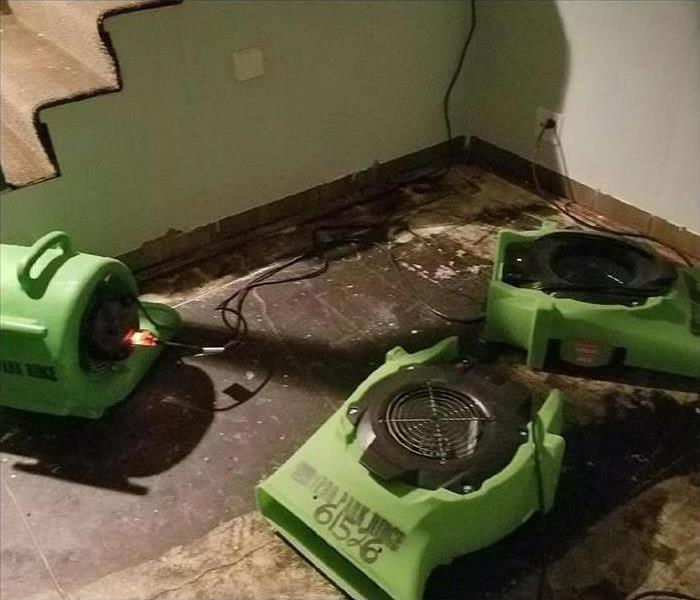Avoid Secondary Damages After Flooding
6/12/2019 (Permalink)
Secondary damages are those caused after the initial stage of damage. For example, if a faucet is left on long enough to flood a room or two, black mold may linger long after you've cleaned up the most obvious damages. Unfortunately, it often takes a while before it becomes obvious that secondary problems are affecting your home.
What are The Main Causes of These Out-of-Sight Damages?
If flood water is allowed to stand in your home long enough for it to begin evaporating, you can almost certainly expect mold growth and other types of secondary home damages. Common causes include
- Extensive water damage
- Undiscovered leaks or flooding
- Inadequate dehumidification
- Unknown conditions or damages in inaccessible areas
- Lack of a timely response to trouble
How can I avoid extra losses related to water damage?
The key to avoiding further trouble is a quick response. The cleanup process must begin immediately for the best results. Pay close attention to materials such as sheetrock, hardwood floors, vinyl flooring, and any porous furnishings. Black mold spores quickly colonize wherever organic materials and a bit of high humidity are available.
If I don't have water damage coverage, will my insurance cover secondary water damages?
If you do have coverage for this situation, secondary damage will certainly increase the cost of the repairs and affect your claim. If your policy doesn't cover water damage situations, it's best to ask the insurance agent about mold or further troubles.
How can I minimize losses?
Call water remediation professionals as soon after discovering the water as you can. Begin to ventilate the property and remove as much water as you can. Open doors, cabinets, and drawers to provide ventilation for any humid areas. Remove your belongings from the home before they suffer more damage. (If you do have coverage, contact your insurance adjuster before moving anything.)
The best way to avoid black mold growth and other secondary water damages is to act quickly. Any hesitation can lead to more trouble for your Chicago,IL, home.



 24/7 Emergency Service
24/7 Emergency Service
